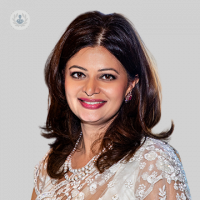Understanding miscarriage: Insights and prevention tips
Written by:Miscarriage is a challenging experience that affects many couples, prompting questions about its occurrence and the possibility of prevention. In her latest online article, Dr Anu Chawla explores the commonality of miscarriages, their primary causes, and proactive steps to reduce the risk.

How common are miscarriages?
Roughly 25% of pregnancies end in miscarriage, but in many instances, the loss happens so early that women may not be aware of their conception. Among those who know they are pregnant; the rate drops to approximately 12%. Early pregnancy loss, occurring within the first three months, constitutes more than 80% of miscarriages, with a notable decline in incidence after the first trimester.
Why does miscarriage happen?
Dr Anu Chawla emphasises that miscarriage can result from various factors, often with no identifiable cause. The majority of women who experience miscarriage go on to have successful pregnancies in the future. Frequently, abnormal chromosomes in the embryo are the leading cause, disrupting proper development. Other contributors include maternal health conditions like kidney disease, uncontrolled diabetes, or thyroid issues, along with undetected gynaecological infections such as chlamydia or gonorrhoea. Some women may experience cervical incompetence or a weakened cervix. In cases of recurrent miscarriage or failed IVF, immune system issues, like elevated natural killer cells, can be a factor.
Common causes of miscarriage:
The three primary risk factors for miscarriage are advanced maternal age, advanced paternal age, and a history of miscarriage. Approximately 75% of miscarriages occur in the first trimester, often due to chromosomal abnormalities. Advanced maternal age increases the likelihood of such issues. Recent research also associates advanced paternal age with an elevated risk of miscarriage. Additionally, a history of prior miscarriages raises the likelihood of future occurrences.
Preventing miscarriage:
While chromosomal abnormalities account for most miscarriages, lifestyle measures can help reduce risks. Avoiding alcohol and drugs, limiting caffeine intake, quitting smoking, maintaining a healthy weight and BMI, and embracing a nutritious diet are essential steps. For individuals with pre-existing health conditions, consulting a doctor before conception is advisable. Screening for gynaecological infections is crucial, and adherence to pregnancy dietary guidelines and medication safety precautions is recommended.
Dr Anu Chawla is an esteemed senior fertility specialist with over 15 years of experience. You can schedule an appointment with Dr Chawla on her Top Doctors profile.


